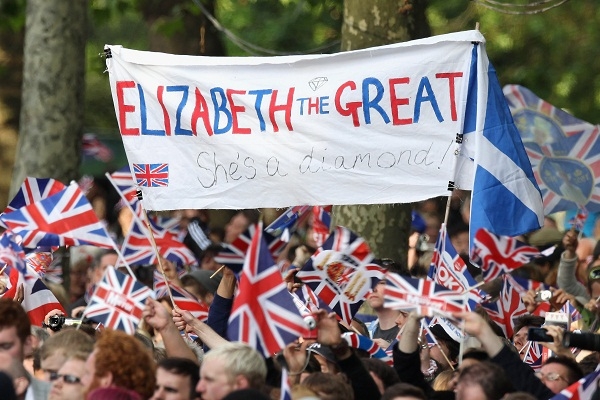‘In a relationship, when does the art of compromise become compromising?’ Thus spoke Carrie Bradshaw. Such knowledge suggests that I have passed her tipping point; my compromises have compromised me. But, then again, one can’t dissent from Robert Louis Stevenson’s view that ‘compromise is the best and cheapest lawyer’, especially when it comes to relationships. There are worse fates than having to do the washing-up occasionally to a backing of unwanted telly.
Yesterday evening, I had hoped to watch highlights of England’s humiliation at the hands of the South African cricket team, but, alas, was forced to settle for Eastenders. Such is life. In fact, Eastenders wasn’t all that bad. It certainly wasn’t dull. An daringly young woman spent the whole episode giving birth in a chippie. No-one thought to trouble the NHS, and the shop manager was happy to banish his customers to accommodate the nativity. This was good business: I didn’t enjoy my fish and chips amid the ear-splitting depiction of labour. In between screams, the new mother’s downtrodden 53-year-old grandfather overcame life’s misfortunes and London Transport to run the Olympic torch through Albert Square.
This live soap opera was strangely affecting, and it reminded me of how poor artistic and literary coverage of the Olympics has been. Good Olympics books have been few and far between, which is lamentable because there are great stories to tell of the 1908 and 1948 Olympics, even if you are bored rigid by athletics. Those events were planned and run by gentlemen amateurs; a species that is now extinct. The lack of funds ensured that democratic ideals prevailed. In 1948, athletes and assorted hangers-on were lodged in the RAF’s extensive quarters in Uxbridge. No Ozymandian temple for them.
The contrast with the present jamboree could not be starker. I was walking through Grosvenor Square the other day and was surprised to see even the trees marked with proprietary flags and logos. There is a difference between being a host and being a billet, and London has allowed itself to become a billet.
Contrast this with the Diamond Jubilee, which, vocal republicans aside, was underscored by affection and humour. During the pop concert, Madness played Our House on top of Buckingham Palace while images of terraced houses and suburban semis were projected onto the façade of the decaying palace. Every Englishman’s home is his castle. It was an ironic demonstration of national unity; an expression of the qualities which the queen’s endless biographers insist she embodies.
The grace to accept gentle ridicule is fundamental to all institutions in democratic societies, so too adaptability. In these pages earlier this year, Robert Hardman compared the queen’s flexibility on the issue of official merchandise with the IOC’s intransigence. The palace waived the rules and the IOC enforced them, infamously so.
This is not merely about empathy, though that is important. Constitutional monarchy can subsist on mystery but it thrives on humility. This became apparent to me when walking around an exhibition of miniature royal portraits, convened by VZ Gallery (based in the arriviste enclave of Shoreditch, but using a room at the Ritz on this occasion). The miniatures and preliminary sketches were the work of Alexei Maximov, an artist at the forefront of the recent revival in Tsarist enamel painting in Russia. Back in the ‘90s, he was privately commissioned by several European royal houses, including the Windsors, to produce informal portraits. The exhibition was the first time that the work has been displayed publicly, giving those people who were interested an insight into private monarchy. It was a small and unimportant example of the general spirit of inclusion that characterised the Jubilee. However, as I write on this glorious summer’s day, the traffic outside my window is at a livid standstill, while the Olympics-only lane is wide-open.
The Jubilee seemed to be the triumph of compromise. The Olympics will (hopefully) be a great success and a source of national pride for years to come; but its smooth arrival is being compromised by an aversion to compromise.





Comments